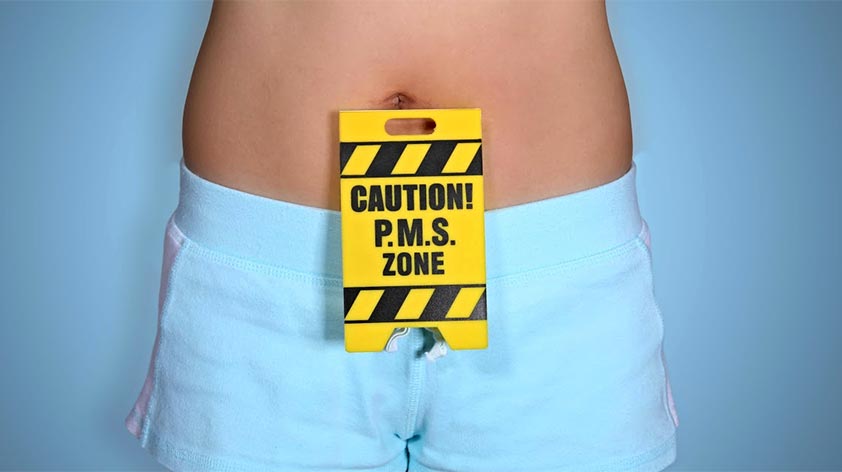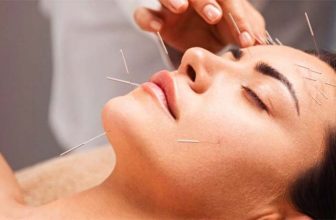
Premenstrual Syndrome (PMS) is a hormone-related response that’s experienced by an estimated 80% of women every month at around the usual time of their periods. Symptoms typically begin after ovulation (around a week before menstruation) and can last until the first day of the period. No one knows exactly why women experience PMS but there are a few things you can do to ease your symptoms, whichever of the many you get. Read on for 3 Keys to Minimize & Master PMS Pain!
Symptoms
When talking about PMS, most of us associate a few loose ideas to it such as irritability and feeling emotional. While these are valid and common effects of PMS, there are several other symptoms that can also arise as a result of it. These include but aren’t limited to:
- Anxiety and tension
- Bloating
- Water retention
- Breast tenderness
- Swelling
- Acne
- Tiredness
- Weight gain
- Headaches or migraines
- Tearfulness, crying or depression
- Sugar/food cravings
- Constipation and dizziness
Not all woman experience every one of these effects so to assume all PMS-ing women experience the same thing, i.e. short-temper or have mood swings, is somewhat stereotypical. Also, if you experience just one of these and have them regularly (over a few months) you are considered a PMS sufferer.
1. Keep calm & serene!
Stress blocks your natural physical, mental, and emotional wellbeing. It is no surprise that understanding stress is important when it comes to PMS pain because of the adrenaline your body releases, which stops your body from using progesterone, successfully.
To combat this, try and minimise worries and prioritise relaxation, yoga, meditation, pranayama (breathing exercises) or other activities that work for you to manage stress levels.
If you find this doesn’t help you to get away from the daily stresses of personal responsibilities then consider adding more magnesium to your diet. Foods rich in this are leafy greens and vegetables, fruits, nuts and seeds. It may also be worthwhile taking magnesium supplements (check in with your doctor or nutritionist).
2. Exercise to release feel-good hormones
Although there isn’t a ‘fix’ for PMS pain there are plenty of ways to manage it and another way is through exercise. Physical movement can ease both the emotional and physical symptoms related to the condition like depression and fatigue.
When working out the body creates ‘happy’ hormones known as endorphins that help you to feel calm, happy and alert. If you exercise regularly, you are much more likely to succeed in reducing stress levels by countering common PMS symptoms like anxiety and depression. By adding a short 15-20 minute cardiovascular session like running, cycling or dancing just a few times a week, you’re likely to see your symptoms gradually (then over time, quite dramatically) improve for the better.
Consult Your Doctor
If you’re experiencing severe pelvic pain or vaginal pain, that can be a sign of a more serious reproductive condition, such as endometriosis, dyspareunia, or vaginismus. It’s best to consult your doctor to get a better diagnosis of your condition.
Pelvic pain isn’t only associated with PMS. There are several factors that can contribute to this symptom, which is why it’s important to get expert advice.
With the right diagnosis, your doctor will be able to recommend certain medications and treatment. He or she may also refer you to a pelvic floor health physical therapist to give you advice on how to alleviate the pain, such as using a medical-grade vaginal dilator.
3. Craving Control Alert!
Many women turn to sweets, chocolates and additional sugar-filled comfort-food snacks during their premenstrual days. However this is one such time where you shouldn’t merely give in to it as it may do more harm than good.
The reason for your need for sugar is really down to a spike in cortisol (stress hormone) due to PMS. As a result the body looks for ways to raise the feel-good hormone serotonin and sugary foods tend to have this effect. Instead, cut out processed sugar and sweet beverages as blood-glucose levels could worsen PMS symptoms if they become imbalanced.
Put simply the higher your sugar intake the more severe your symptoms are likely to be. Turn to ‘nature’s candies’: ripe bananas, red grapes, peaches, nectarines, mangoes etc.









